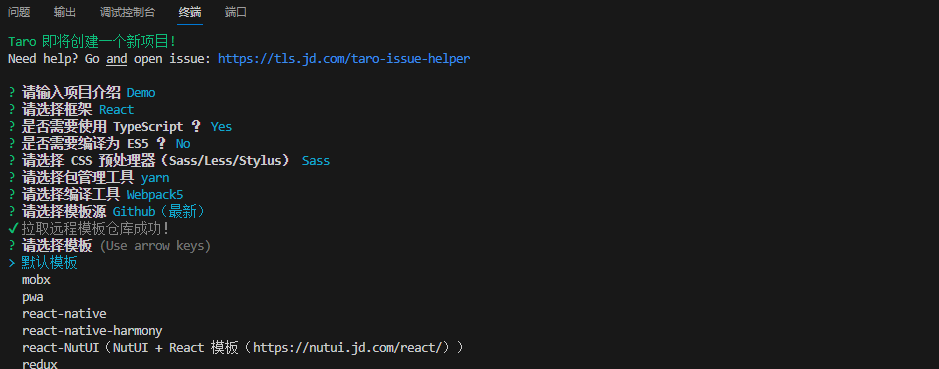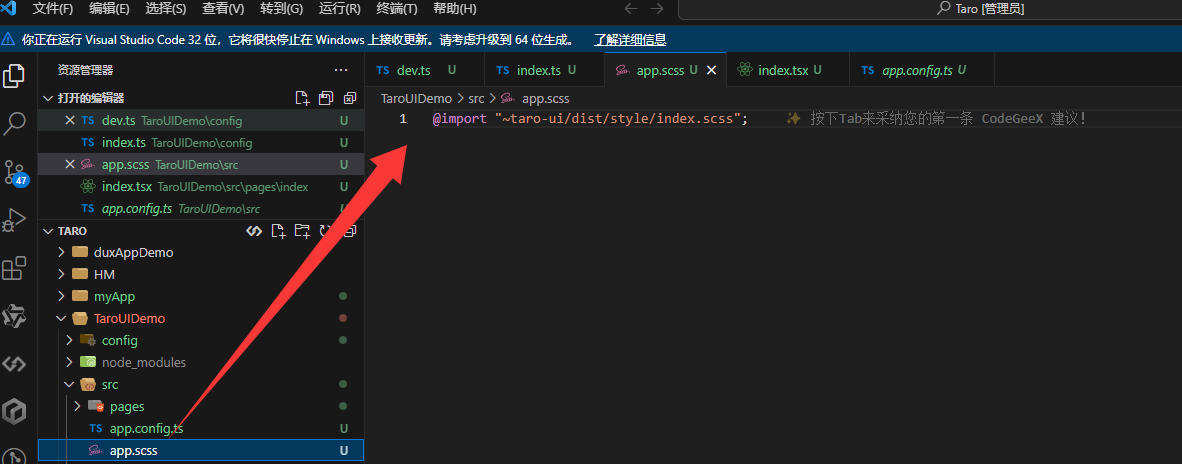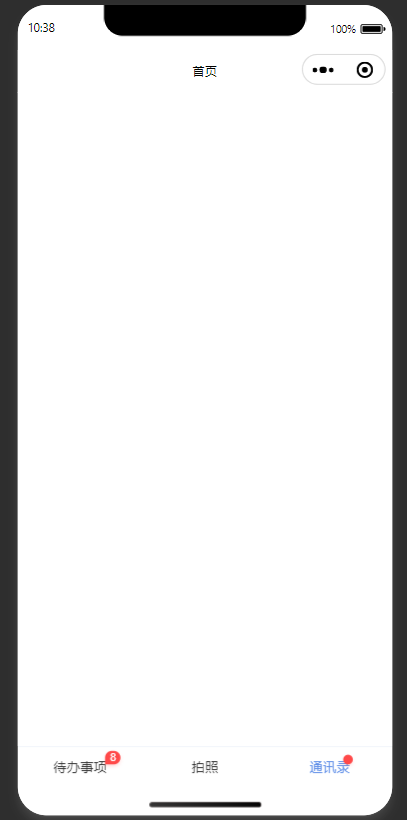Taro开发之——UI库使用教程(18)
一 概述
- 为何使用UI库
- 常用UI库
- UI库之—TaroUI使用示例
二 为何使用UI库
2.1 效率提升:从重复造轮子到快速拼装
1 | -现成组件开箱即用:UI 库提供了按钮、表单、导航栏、模态框等高频组件 |
2.2 设计一致性:团队协作与品牌标准化
1 | -统一视觉语言 |
三 常用UI库
| 名称 | 介绍 | 支持的框架 | 支持的 Taro 版本 |
|---|---|---|---|
| TaroUI | 一套基于 Taro 框架开发的多端 UI 组件库 | React | Taro 1/2/3 |
| nutui | 京东风格的轻量级移动端 Vue 组件库 | Vue3 | Taro 3 |
| taroify | 轻量、可靠的小程序端 Taro 组件库(Vant 的 Taro 版本) | React | Taro 3 |
| @antmjs/vantui | 基于有赞 VantWeapp 开发的同时支持 Taro 和 React 的 UI 库 | React | Taro 3 |
| Tard | 一套基于 Taro 框架开发的多端 React UI 组件库 | React | Taro 3 |
| duxui | 一套能同时兼容小程序、React Native、鸿蒙、H5的移动端ui组件库 | React | Taro 4 |
四 UI库之—TaroUI使用示例
4.1 安装 Taro 脚手架工具
1 | npm install -g @tarojs/cli |
4.2 初始化项目
1 | taro init TaroUIDemo |

4.3 安装 Taro UI
1 | cd TaroUIDemo |

4.4 使用 Taro UI
1、全局引入(CSS中): 在 app.scss 样式文件中 import 组件样式
1 | @import "~taro-ui/dist/style/index.scss"; // 引入组件样式 - 方式二 |

2、使用示例:src/pages/index/index.tsx
1 | import { View, Text } from '@tarojs/components' |
3、编译执行
1 | npm run dev:weapp |
4、微信小程序打开查看效果

4.5 修改演示
1、修改src/pages/index/index.tsx修改如下
1 | import { View, Text } from '@tarojs/components' |
2、编译运行到微信小程序如下

五 参考
- Taro官网
- Taro UI